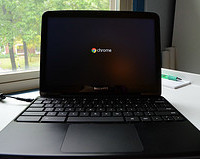Every parent wants to provide the best for his/her child, but how to choose the best laptop for a college student? There are so many options, and what a teenager deems top priority may not be as important to the parents. Of course, whoever is paying for the laptop gets the final say, but parents and students who can agree on a few key features will find themselves breathing sighs of relief. To avoid embarrassing fights in the computer store, here are the top three options that you and your college student may want to discuss ahead of time.
1. PC or Mac

PCs are everywhere, but Mac lovers are a fiercely loyal breed. Both of these have software that makes files readily compatible with just about any computer. PC laptops have more software choices – and games – and are priced more economically. However, PCs become outdated more quickly than Macs and are more vulnerable to viruses and other dangerous elements on the Internet.
Macbook laptops look cool, are easy to use, and are powerful and efficient. In general, Mac users experience less software crashes and frustrations than PC users. These computers are more pricey but tend to last longer.
When debating the merits of a PC versus Mac, bear in mind that the processors cannot be compared directly due to differences in the nature of the computer hardware. To gauge relative speed and power, look at how each computer performs: How responsive is the system? Is there a lag time? How much time does the computer need to complete a given task such as opening a large file?
2. Connectivity

How will your college student connect the laptop to the rest of the world? For instance, what ports and drives does your student require? A comprehensive computer will have USB, HDMI, DVD player, memory card reader, and VGA / DVI port. The bare minimum is two USB ports; whether a student needs something like a DVD player is up for debate, although a CD player is handy for software installations and listening to those old-fashioned CDs.
In this age of wireless Internet, Wi-Fi is a must for easy connectivity to the school network and to the Internet. Bluetooth is recommended for pairing the computer with devices such as headphones, iPods, and game consoles.
3. Size and Weight
Does your child generally stay in one place to study, or does he/she flit around more than a hummingbird? This will determine the size and weight limit of the new laptop. A 17-inch screen is easier on the eyes but makes for a very large and heavy brick to haul across campus.
This list is just a starting point for discussion. After these three options have been decided, research other features such as webcam, video card, and battery life. And don’t forget to inquire about the warranty and return policy. If you can keep these tips in mind and maintain an open dialogue as you and your child shop for the ideal laptop, then you should be able to find something that will make you both happy.
Photo credit: Apple Store, Georgetown by Blake Patterson/flickr; My New Toy by slgckgc/flickr.
